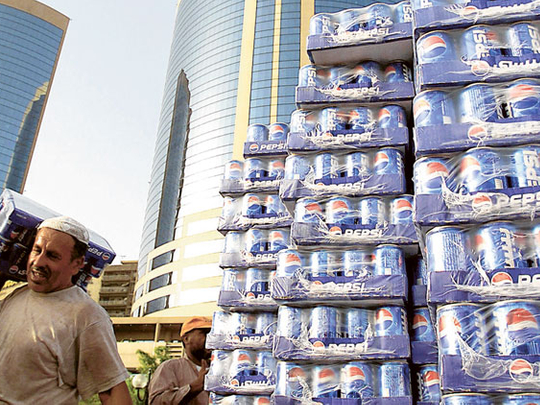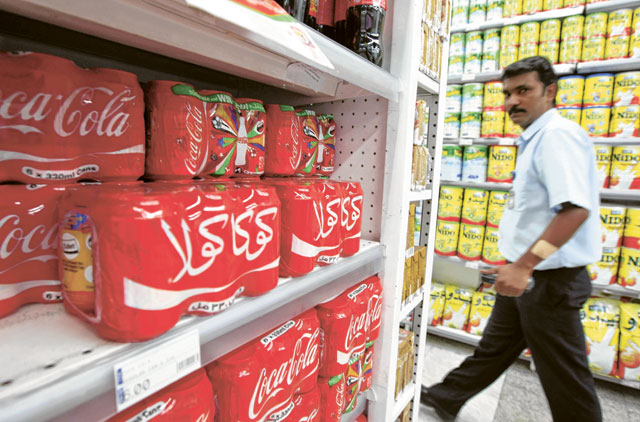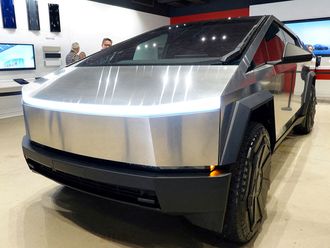
Dubai: It's been a tumultuous year for PepsiCo's Middle East and Africa operations. Economic upheaval and political uprisings have put the soft drink and snack-maker's operations to the test.
However, despite these issues, its regional business has been enjoying consistent double-digit growth and Sanjeev Chadha, president of Middle East and Africa at Pepsi-Cola International, looks to the future with optimism.
During the events of the Arab Spring, PepsiCo's sales and bottling facilities took a slight hit, particularly in its bigger markets such as Egypt and Libya.
"Libya was one country where we faced the maximum destruction. Our bottling plant in Libya was affected and our bottling facilities are still not up to full capacity, but it's amazing we were able to operate most times despite what was happening there," said Chadha.
However, despite this slight hit to revenues, PepsiCo was still able to achieve over $6.4 billion in sales across the Middle East and North Africa (Mena) region last year. The company's 15,300 employees in 29 countries and 70 bottling facilities across the Mena region ensure a well-established footprint.
"Mena is a significant component of PepsiCo's global business and given the tremendous growth potential in the region, I see it playing a larger and larger role in being a driver for PepsiCo's global growth," said Chadha. "The Middle East has the unique combination of still being a developing market with high growth potential and has significant profitable growth. Typically in emerging markets while the growth is there, the road to profitability is a long one, whereas this market becomes very attractive for organisations likes PepsiCo because the return on the shareholder investment becomes higher," he added.
New markets
According to Chadha, PepsiCo holds the top position in every category it operate in.
"The Middle East is the strongest market for PepsiCo globally in literally ever category. We are clear leaders by a significant gap vis-a-vis our closest competitors in each of our categories; salty snacks, colas, lemon and lime, flavours and oats," said Chadha.
Saudi Arabia has been one of PepsiCo's strongest markets this year. "The beauty about the Middle East is that our markets today are very significant in terms of size and scale. On top of that there is tremendous potential for growth and Saudi is one definite example. In terms of demographics, the Saudi population is a lot younger. You have a combination of a younger population, recovering economy and busy lives. Convenience has a need which will only continue to increase with time. We have a sweet spot where we will be able to provide on snacks and beverages," said Chadha.
Outside the Middle East, Pepsico is looking into new markets in Africa where their presence is still limited.
"It's a young and growing population and one of the fastest growing economies in the world and will be for the next 30 years. We are ramping up our efforts across many markets in Africa and Nigeria is our number one priority for now," said Chadha.
Keeping its portfolio growing, PepsiCo is also investing one third of its growth profits in new products in order to expand its food footprint.
The latest additions, the carbonated soft drink Tropicana Fruits and the malt non-alcoholic drink Al Barrio, are set to enter the UAE market.
Education project
"Right now they're doing very well but we've had production capacity constraints in Saudi where they are being introduced and manufactured. As soon as we get that sorted out we'll come out with all guns firing," said Chadha.
PepsiCo is a strong advocate of what it terms ‘Performance with Purpose' in which it invests in projects and initiatives to promote sustainable growth. The company has launched a number of projects in which it looks to give back to the community and environment.
One project is the Tomooh Education Project, a scholarship programme aimed at underprivileged students in the Middle East who are seeking to further their education.
The programme was initiated in 2003 at the Arab Economic Forum at which Sa'ad Abdul Latif, president of PepsiCo Asia, Middle, East and Africa, pledged $1 million (Dh3.67 million) to promote education in the Arab world.
Since then PepsiCo's pledge has doubled, benefiting students in three markets of the Middle East:Lebanon, Jordan and Egypt.













